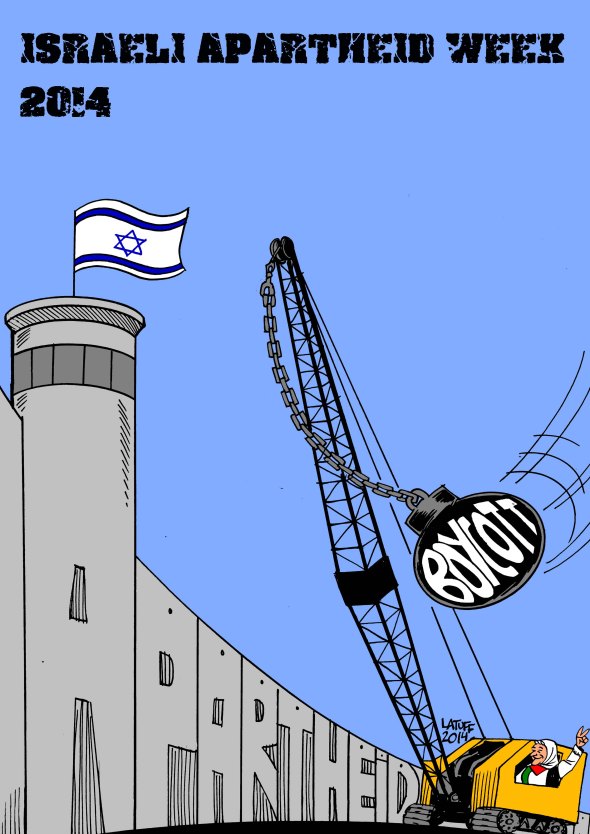مؤتمر جنيف 2: النجاح في اعادة تدوير الفشل
رأي القدس
ثمة اسئلة صعبة ينبغي التوقف عندها مع وصول مؤتمر جنيف الثاني الى نهاية الطريق المسدود، بعد ان اكد المبعوث الدولي الاخضر الابراهيمي بشكل واضح ان التوصل الى اتفاق قريب بشأن وقف المعارك او تشكيل هيئة للحكم الانتقالي امر مستبعد.
ولعل اهم تلك الاسئلة، الى متى يستمر الشعب السوري اسيرا لهذا النفق المظلم الذي تحدث عنه الابراهيمي؟ وهل علينا ان نستعد لثلاث سنوات اخرى من الفرجة على القتل والدمار الشامل في سوريا؟ وهل كان ذهاب المعارضة الى جنيف قرارا له ما يبرره في ظل المعطيات السياسية والعسكرية التي تصب جميعا في مصلحة النظام؟ ام انه اتخذ ايثارا لمصالح وولاءات اقليمية ودولية ما على المصلحة الوطنية؟
الم يذهب النظام الى جنيف فاقدا للمصداقية والاهلية دوليا، وعاد منها بعد ان اكتسب صفة ‘الشريك في صنع السلام’ الذي يفرش له السجاد الاحمر، ويحظى باعتراف دبلوماسي على المستوى الاممي بعد ان كان ينظر الى اركانه باعتبارهم مجرمي حرب، مكانهم الطبيعي امام المحكمة الجنائية الدولية في لاهاي؟
وهل حان للمعارضة السورية ان تنظر لنفسها في مرآة الحقيقة، وان تصارح نفسها وشعبها معا بنصيبها من المسؤولية عما وصلت اليه فصول هذه التراجيديا المأساوية التي يعيشها هذا البلد العريق؟ وهل مازال اسقاط النظام ممكنا قبل ان يمر قطار التغيير على المعارضة نفسها؟
وهل كان اصرار المعارضة ومن ورائه الولايات المتحدة على استبعاد ايران من المشاركة في مصلحة المؤتمر؟ ام في مصلحة النظام الذي لم يجد من يضغط عليه في الكواليس لتحقيق حد ادنى من التقدم؟
وما سبب بقاء الابراهيمي في منصبه بعد كل هذا الفشل المزمن؟
الواقع ان مؤتمر جنيف 2 لم يخيب توقعات اغلب المراقبين ففشل فشلا ذريعا. فشل في مجرد الاتفاق على جدول للاعمال. وحسب بشار الجعفري كبير مفاوضي وفد النظام، لم يجر بين وفدي النظام والمعارضة اي حوار او تفاوض حقيقي اصلا في ظل عدم وجود بنود واضحة للمناقشة.
ربما نجح مؤتمر جنيف 2 في تعزيز المكانة الدولية للنظام والمعارضة معا، بأن ضمن استمرار الدعم الدولي والاقليمي الذي يشكل شريان الحياة لكل منهما، الا انه فشل في تقديم اي معونة حقيقية للشعب السوري، فاستمر القتل قصفا وذبحا وجوعا اثناء انعقاده.
وبكلام اخر لم ينجح الا في اعادة تدوير الفشل، لينتج فشلا اخر اكبر، وليكرس شعورا عميقا بالاحباط واليأس لدى الكثيرين. فيا له من نجاح.
اما وفد النظام فيبدو انه كان مصمما منذ اللحظة الاولى على الالتزام الصارم باجندته.
ومنذ فشل الامين العام للامم المتحدة بان كي مون في اسكات وزير الخارجية السوري وليد المعلم بعد ان تجاوز ضعفي الوقت المخصص لخطابه في الجلسة الافتتاحية في الثاني والعشرين من كانون الثاني/يناير الماضي. كان الفشل دائما ‘يلوح في الافق’ حسب تعبير الاخضر الابراهيمي.
رفض وفد النظام السوري ان يعترف بجنيف 1، او ان يقبل بادراج كلمة ‘التغيير’ في اي وثيقة رسمية او غير رسمية حتى لا تفسر على انها تعني ضمنيا تنحي بشار الاسد، ورفض ان يتحدث الا في مكافحة الارهاب.
في المقابل، وكأنه فوجئ بموقف النظام المعلن مسبقا، بدا وفد المعارضة مضطربا على خلفية الانقسامات والانسحابات عشية انعقاد المؤتمر، بل ومنفصلا عن الواقع، بدءا من الجلسة الافتتاحية التي حاول فيها، وعلى الهواء مباشرة، اقناع وليد المعلم بالانشقاق عن النظام ليكون الوفد السوري ‘موحدا’، وانتهاء برفضه مناقشة مكافحة الارهاب، ما بعث برسالة خاطئة في الوقت الخطأ مفادها انه مرتبط او عاجز عن الزام الجماعات الارهابية باي اتفاق، وهو ما يؤيد البروباغندا التي تبناها النظام منذ اندلاع المعارك.
وفي حين استفاد وفد النظام من خبرة المعلم كدبلوماسي مخضرم، بدا رئيس وفد المعارضة أحمد الجربا فاقدا للقدرة على التأثير او كسب التعاطف والتأييد لقضية عادلة.
اما وزير الخارجية الروسي سيرغي لافروف فقال ان ‘البعض ظن انه يمكن ان يسقط النظام السوري من جنيف’، وهو تصريح لا يحاول اخفاء روح التهكم والسخرية من ذلك البعض.
ولم تكن دعوة الولايات المتحدة الى البحث عن ‘خيارات جديدة’ بعد فشل جنيف اقل اثارة للسخرية، حيث ان الذهاب الى جنيف في حد ذاته كان تعبيرا عن نفاد الخيارات تجاه سوريا، حتى ان كثيرين كانوا اعتبروا ان ملف الازمة خرج بالفعل عن السيطرة.
اما بالنسبة للجامعة العربية فمن الصعب تصور انها مازالت تملك اي قدر من التأثير على هذا الوضع المعقد، بما في ذلك الدول العربية التي دعمت المعارضة السورية من اليوم الاول.
فشل جنيف 2 وضع الجميع امام لحظة نادرة للحقيقة، فهل يقتنصها احد ليكسر هذه الدائرة الجهنمية من الدماء؟










